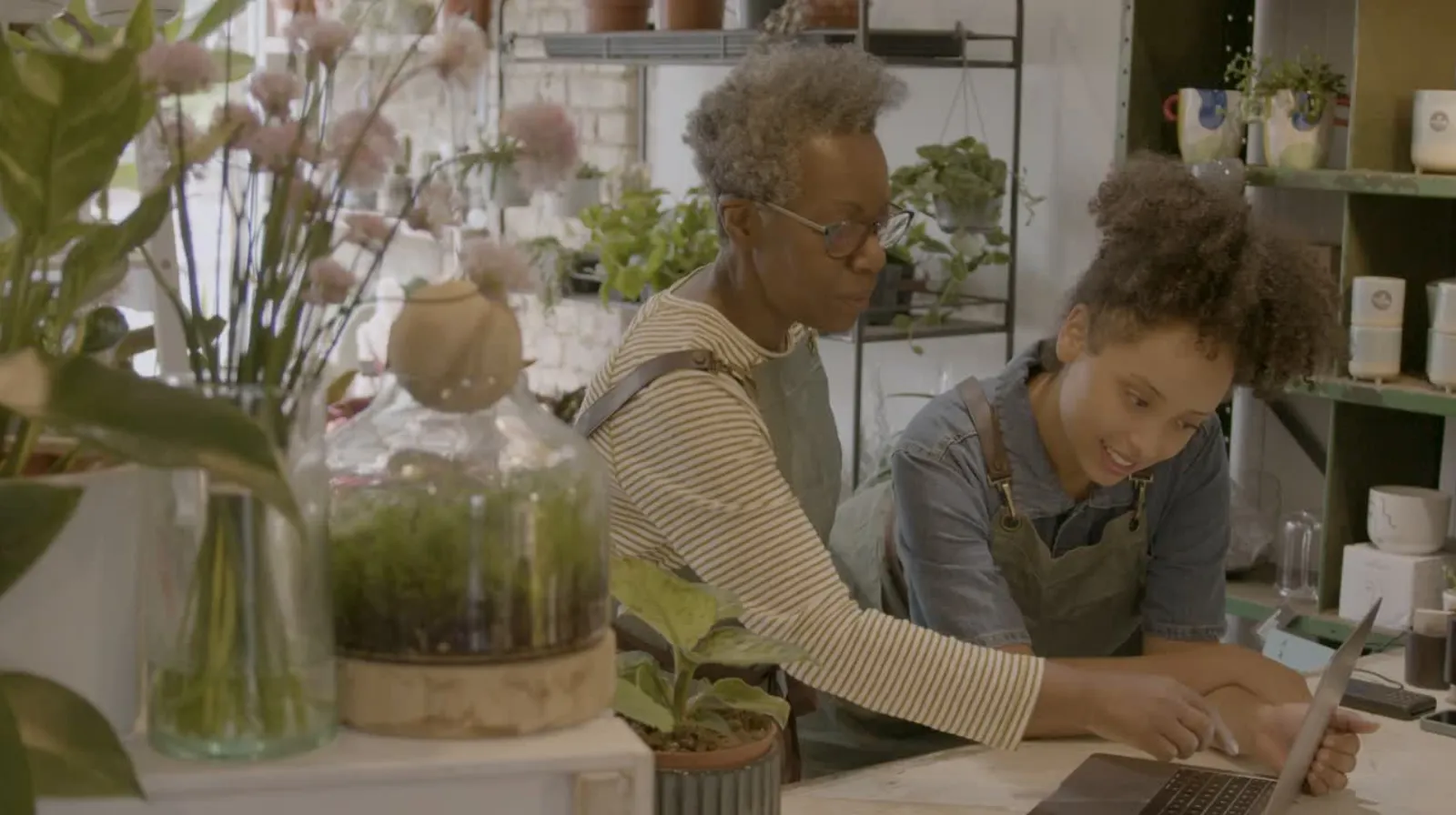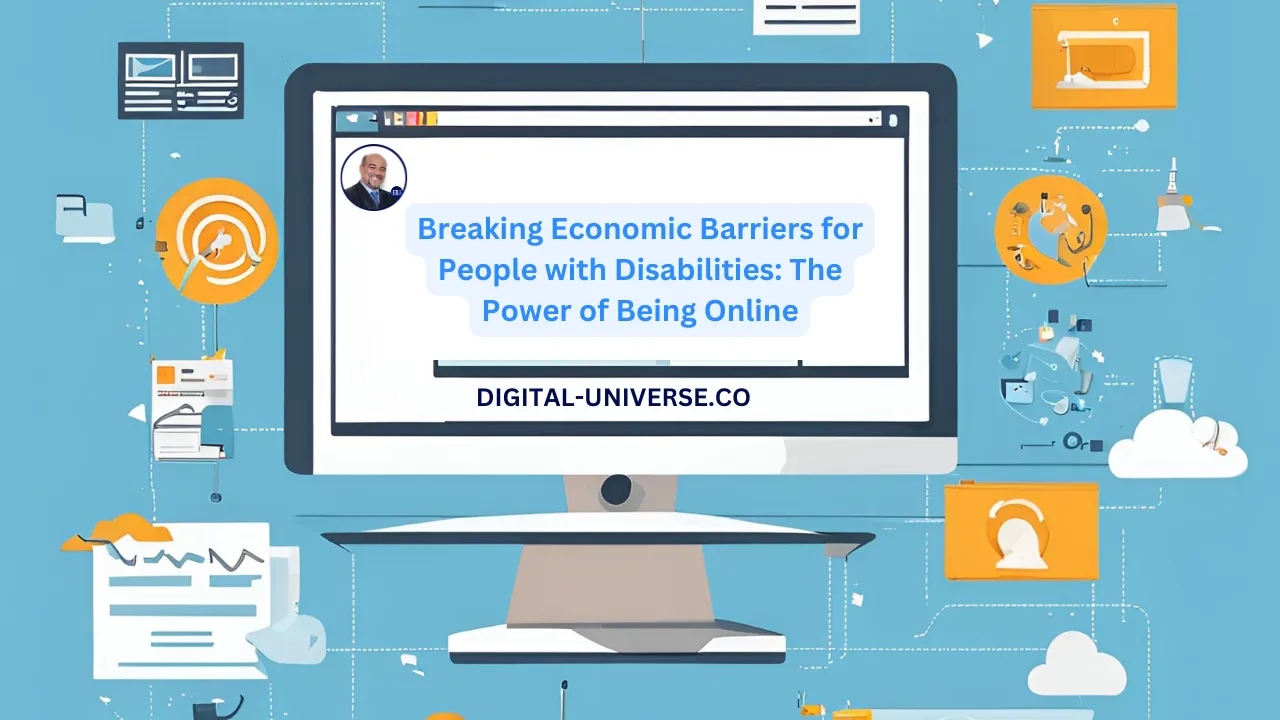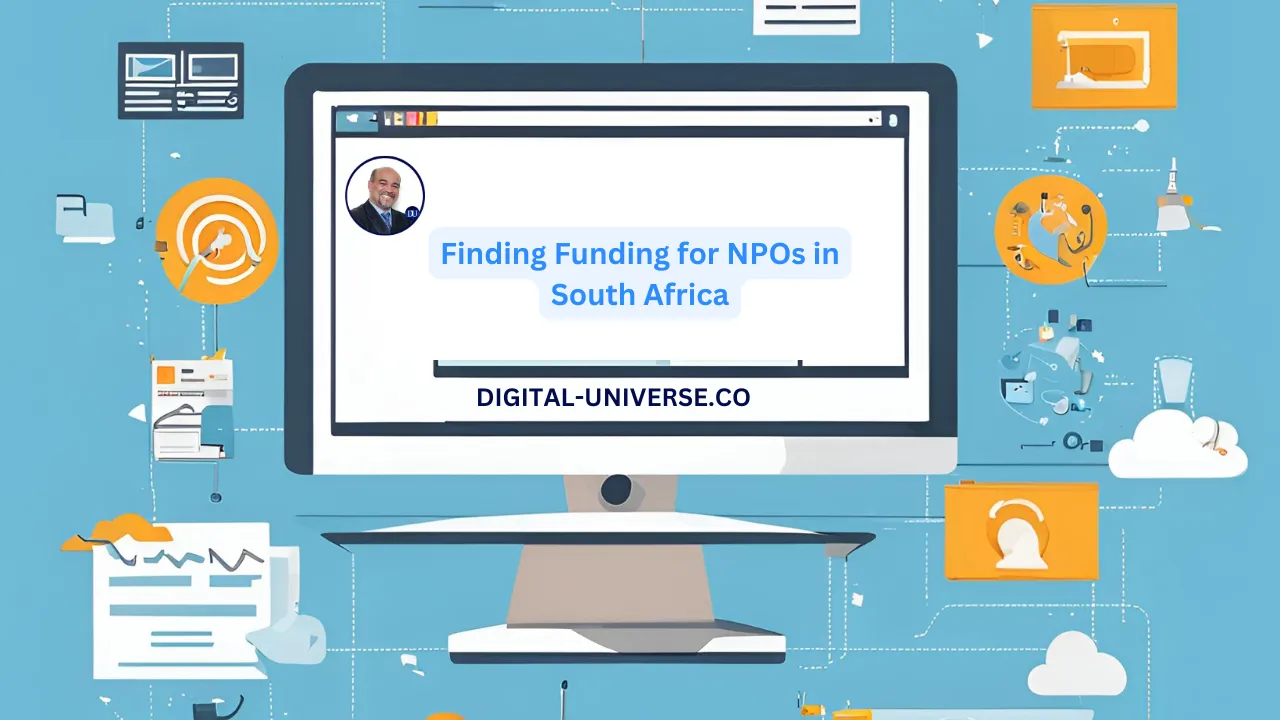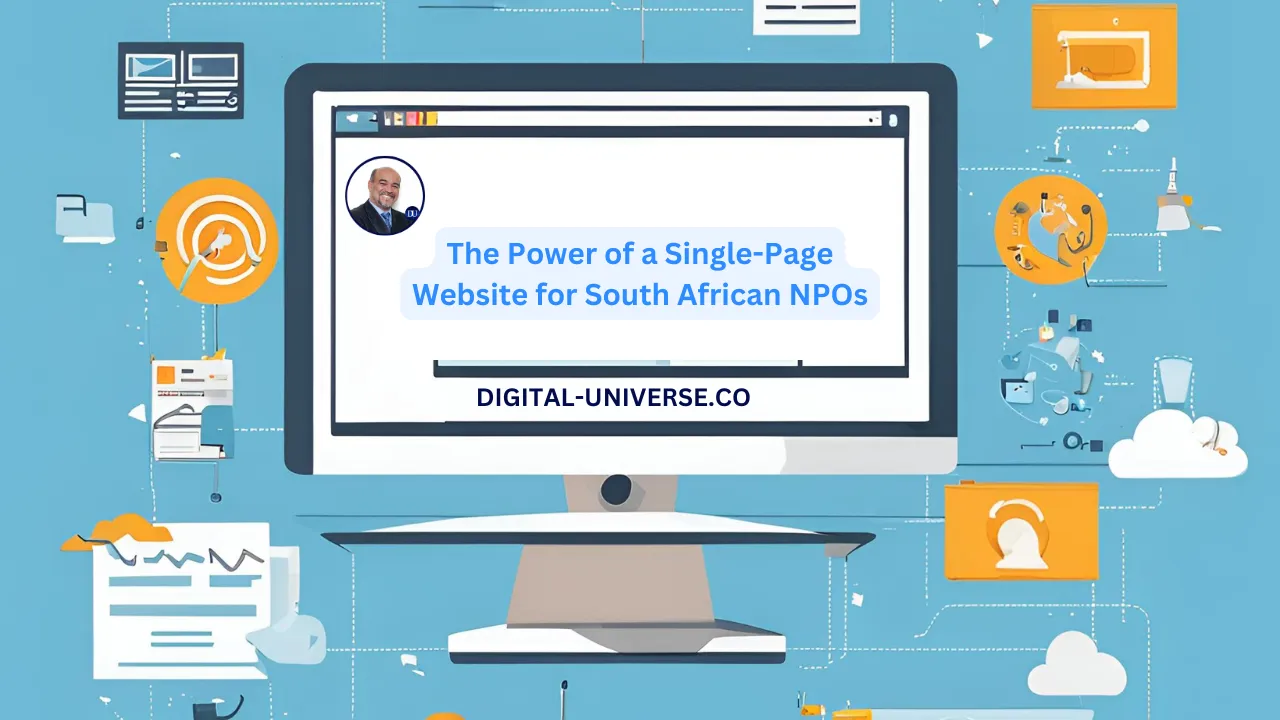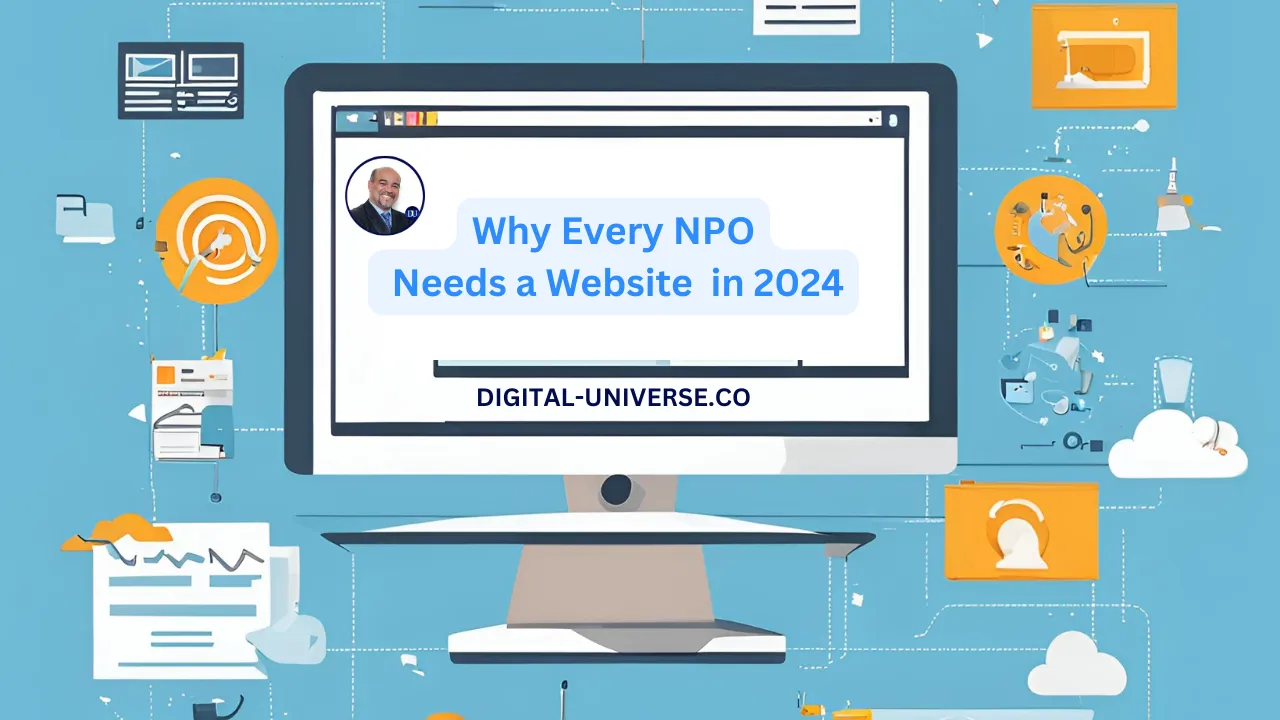Why every Small Business needs a Budget for Online Marketing & How To Make It Work When Times Are Tough
Small businesses in South Africa's lively but difficult economy have to deal with a lot of competition and uncertainty about the economy. It's harder than ever to stay visible and important because of rising costs and changing consumer habits.
Online marketing, on the other hand, is a tool that always works for small businesses that want to do well. In this blog post, we'll talk about why every small business in South Africa needs a separate online marketing budget, how much of their revenue should go to it, and the real benefits, especially when times are tough.
Why South African Small Businesses Can't Live Without Online Marketing
The digital world in South Africa is growing quickly. According to Statista data from 2024, more than 70% of South Africans use the internet regularly, and more than 90% of people have mobile phones. This means that people are online looking for products, services, and answers. Your customers are on Google, Instagram, Facebook, and WhatsApp, whether you run a spaza shop in a township, a boutique in Cape Town, or a consulting business in Joburg. Your competitors are there if you aren't.
A budget for online marketing is not a luxury; it is a must-have. It's the way to connect your business to customers in a way that is cheap, scalable, and easy to measure. Online marketing is different from traditional advertising (like flyers or radio ads) because it lets small businesses reach specific groups of people, see how well their ads are doing, and change their plans right away. This level of accuracy is very important when money is tight and every rand counts.
How Much Should Small Businesses Pay for Online Marketing?
The amount of money a business spends on online marketing depends on its size, industry, and growth goals. A good rule of thumb for small businesses in South Africa is to spend 7–12% of their gross revenue on marketing, with at least 50–70% of that going to online marketing.
For instance: A small store that makes R1 million a year might spend R70,000 to R120,000 on marketing, with R35,000 to R84,000 going to online marketing.
In competitive markets like Gauteng or the Western Cape, a service-based business (like a salon or a consultancy) might lean towards the higher end (10–12%) to get the word out about their brand.
New businesses or businesses that are growing may try to get 15% of the market share.
This range is in line with global standards, such as those from the U.S. Small Business Administration, but it is specific to South Africa, where digital adoption is high but budgets are often tight.
The Advantages of Having an Online Marketing Budget for Small Businesses in South Africa
Putting money into online marketing pays off, especially when the economy is bad. This is how:
1. Reach that doesn't cost a lot - Small businesses may not be able to afford traditional advertising, like billboards or print media. Google Ads (starting at R10/day) and Facebook Ads are two examples of online marketing that are cheap and have flexible budgets. A small coffee shop in Durban, for instance, can reach local customers within a 5 km radius, making sure that every rand spent goes to the right people. This level of accuracy cuts down on waste and increases ROI during tough times.
2. Gaining Trust and Credibility - South African shoppers are smart; they do their research before they buy. A professional website, an active social media presence, and good reviews on Google all show that a business is trustworthy. For example, a catering business in Soweto with a well-designed Instagram page that shows off delicious food and customer reviews is more likely to get bookings than one that only relies on word of mouth. In tough economic times, trust sets businesses apart. Customers are more likely to choose businesses that seem trustworthy and easy to reach online.
3. Being able to change with the economy - Economic challenges like inflation or load shedding hit small businesses hard. Online marketing lets you change course quickly. For instance, many South African restaurants used WhatsApp and social media to advertise delivery services during lockdowns, which kept their income up. Google My Business and other platforms let businesses change their hours or offerings right away, so customers know what's going on when things go wrong.
4. Getting to know the data and insights - Online marketing gives you data that other methods can't. Google Analytics and Meta Business Suite are two tools that can show you who is clicking on your ads, what they are buying, and where they are located. A hair salon in Pretoria could find out that 60% of its Instagram followers are women aged 18 to 34 from Centurion. This would let the salon tailor its promotions (like student discounts) to boost sales. These tips help small businesses focus on strategies that will have the most effect when times are tough.
5. Competing with Bigger Companies - Big chains own most of South Africa's retail and service businesses, but online marketing makes things more fair. A small artisanal brand from the Eastern Cape can use SEO (Search Engine Optimisation) to compete with big stores on Google or use TikTok to go viral for very little money. During economic downturns, when consumers seek value, small businesses can highlight unique offerings (e.g., “locally made” or “affordable quality”) to stand out.
6. Helping Local and National Growth Online marketing knows no borders. A small business in Bloemfontein can sell to people in Cape Town through an e-commerce site or marketplace like Takealot. Yoco and other platforms that accept online payments make it easier to grow. In hard times, getting more customers from outside your area can be a lifesaver.
The Effects of Online Marketing When the Economy Is Bad
High unemployment (33% in 2024, according to Stats SA), inflation, and currency fluctuations are some of the economic problems that hurt small businesses in South Africa. A budget for online marketing can make a big difference:
Keeping an Eye on Things: When budgets get tight, people stop spending money on things they don't need. Online ads, like retargeting ads that remind people who visit your website to buy or interesting content on social media, keep your business in people's minds.
Promotions like flash sales or loyalty discounts sent out through email or WhatsApp can help you make quick sales to cover costs like rent or wages.
Getting Customers Who Care About Costs: Targeted ads that show value, like "R50 off your first order," work well with South Africans who are feeling the pressure of the economy.
Making Yourself Stronger: Businesses that were well-known online did better during COVID-19 than those that weren't. The South African Chamber of Commerce (2023) says that businesses with digital strategies bounced back 20% faster after the pandemic.
How to Set Up Your Online Marketing Budget in Real Life
Look at how much money you make: Start by figuring out 7–12% of your gross revenue. Start with 5% if you don't have a lot of money and increase it as things get better.
Put Platforms First: Pay attention to where your customers are. Facebook and Instagram are great for retail businesses, while Google Ads and LinkedIn are great for service businesses.
Use WhatsApp Business for direct customer engagement.
Start with a small amount: Before you scale up, try out low-cost campaigns (like R500/month on Facebook Ads) to see how much money you can make.
Use free tools: For more visibility in your area, set up a Google My Business profile. You can also make free social media graphics with Canva.
Check Results: Use analytics to find out what works. Make changes to campaigns so that they focus on channels that do well.
Think about hiring a South African agency such as Digital Universe to help you optimise your campaigns for local audiences. They can often do this for a reasonable price.
A Success Story from South Africa For example
Mama's Kitchen is a small restaurant in Khayelitsha. Because fewer people were coming into their store during the economic downturn of 2023, they set aside R2,000 a month (10% of their revenue) for online marketing. They made a Google My Business page, ran Facebook Ads aimed at people who lived nearby, and used WhatsApp to tell people about their daily deals. Within three months, online orders had doubled, and they got new customers from nearby areas, which increased sales by 25%. This small investment made a business that was having trouble into a local favourite.
In conclusion
To do well, you need to spend money on online marketing.
Small businesses in South Africa can't afford to ignore online marketing because the economy is so bad. A budget of 7–12% of revenue that is focused on digital channels gives you affordability, flexibility, and results that you can measure.
Online marketing helps small businesses not only stay in business but also do well by building trust and competing with bigger companies. The digital world is where your customers are, whether you live in Johannesburg, Cape Town, or a small town.
Are you ready to go?
Set aside a small amount of money, try out one platform, and watch your business grow.
When things get tough, online marketing isn't just a cost; it's your way to success.
What to do: In the comments, tell us about your small business's success with online marketing, or get in touch with a local digital marketing expert to get your strategy going right away! Follow us on Facebook, Instagram, LinkedIn, TikTok and X for more tips. Or, Apply for a FREE website, HERE !


